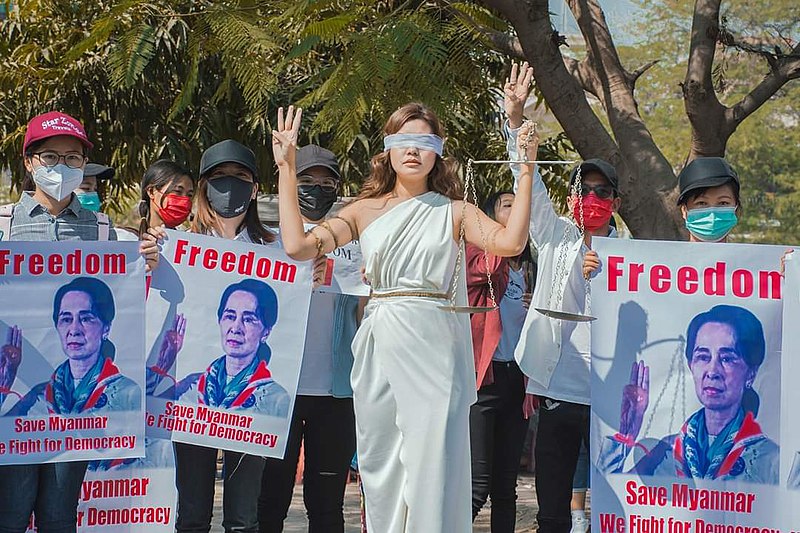On 1 February, the military in Myanmar executed a coup that has shaken the country, the region and the world, and undermined democratic principles critical to the success of the country’s transition.
Opposition politicians from the National League for Democracy, including State Counsellor Aung San Suu Kyi and President Win Myint, have been detained and arrested. So, too, have many outspoken defenders of democracy and human rights as well as ordinary people who dared to stand up against the military coup. The military leadership has shut down internet access in the country, and is considering a deeply-problematic new cyber security law that would amplify longstanding concerns among the human rights community about digital surveillance and other risks.
ISHR welcomes the timely statements from the UN Secretary General, High Commissioner for Human Rights, UN Security Council, and Special Rapporteur on the situation of human rights in Myanmar. We echo their calls for the military leadership to urgently return power to duly-elected civilian leaders, immediately release those detained, and ensure the right to peaceful protest.
The response on the ground is overwhelmingly a rejection of military might. From students, to trade unions, to medical staff, to civil servants and bank workers, a wide swath of Burmese society is refusing to back down. Since the coup, they have embraced a civil disobedience movement that underlines non-violent struggle. They have protested daily by marching and by banging pots and pans, and they have rallied together to demand the respect of the outcome of the November democratic elections; the release of the detained leaders; and, for some, an end full-stop to any military role in governance.
While remaining driven by groups on the ground, the pro-democracy movement has also made clear the importance of support from the international community to back their efforts as they do so, including through targeted sanctions on military leaders. This has explicitly included calls on global business to end contracts with, or that benefit, Burmese military actors, and to support workers as they exercise their fundamental freedoms of speech and peaceful protest.
Read more from ISHR about what businesses should do to stand up for human rights in Myanmar.
Against this context, the Human Rights Council’s ‘special session’ on Myanmar – requested by the United Kingdom and supported by 19 other government members of the Council – can act as a speed bump, or a safety net. In statement issued on 5 February, jointly with more than a dozen NGOs, ISHR has clearly stated that the Council should follow the advice of its own experts: to act ‘promptly and decisively to early warning signs of impending crisis’.
For Sarah M. Brooks, ISHR programme director, it was clear that standard practice was not sufficient. ‘Waiting for the next session, and relying on the same, standard means of reporting on rights in the country, is not an option. It’s an abdication of duty’.
‘We appreciate the quick action of the UK and others to call a Special Session, and encourage all States to ensure that transparency and accountability are at its core. That means setting up clear expectations for the UN in documenting and addressing ongoing allegations, and deterring future violations’.
On 3 February, UN Secretary General Guterres declared that the UN would ‘make sure’ the coup fails. The Special Session of the Council is a critical first step, but much more – including from the Security Council, bilateral trade and development partners, and the private sector – is needed to restore the democratic institutions and respect the wishes of the Burmese people.
For more information, please contact Sarah M. Brooks at s.brooks[at]ishr.ch or @sarahmcneer.
Photo: Whopeehere/Wikimedia Commons




